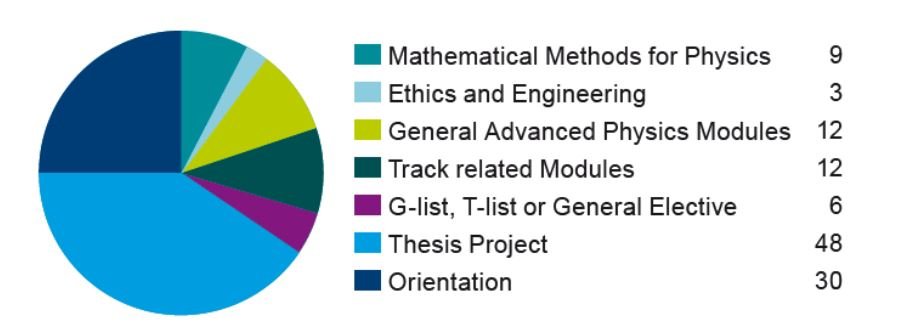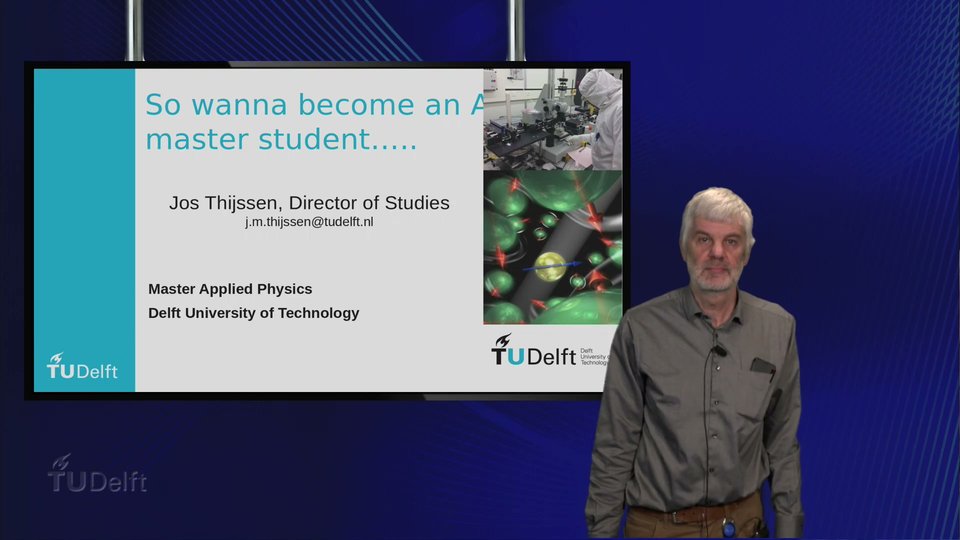Applied Physics programme
The Master’s programme in Applied Physics takes two years and equates to 120 ECTS. The programme is made up of core modules and an orientation. It is very flexible and offers many possibilities to tailor it to your own interests. Your actual programme will comprise a selection of modules from one of the tracks as well as additional orientations. Roughly speaking, the first year comprises course work, while the second year is primarily devoted to thesis work. You can choose from the following research tracks:
- Physics for Energy
- Physics for Fluids Engineering
- Physics for Health and Life
- Physics for Instrumentation
- Physics for Quantum Devices and Quantum Computing
The core programme equates to 90 ECTS and has the same structure for all tracks and all students:
- 12 ECTS of G-list (general) modules: you will choose two of the following advanced fundamental physics modules: Advanced Electrodynamics, Advanced Quantum Mechanics, Advanced Statistical Physics, and Continuum Physics.
- 12 ECTS of T-list (track) electives: you will be able to choose from over 60 modules.
- 9 ECTS: Mathematical Methods for Physics.
- 3 ECTS: Ethics and Engineering. You will explore the ethical and social aspects and problems related to technology and to your future work as a professional.
- 6 ECTS: Elective, for example an additional G- or T-list module.
- 48 ECTS: Master’s thesis work that you will carry out in one of the departments within the Faculty of Applied Sciences or in an affiliated group.

Combining the core programme with a 30 ECTS professional & societal orientation completes the Master’s programme. The orientation will allow you to either deepen or broaden your degree programme. There are several possibilities:
- Research and Development (R&D) – the default option, chosen by most of the students. It includes a three-month industrial internship or a group design project, as well as additional electives.
- Education (Ed1/Ed2).
- Management of Technology (MoT).
- Casimir pre-PhD programme (Cas).
The programme and all modules are described in detail in the study guide.
